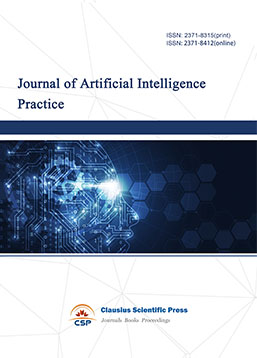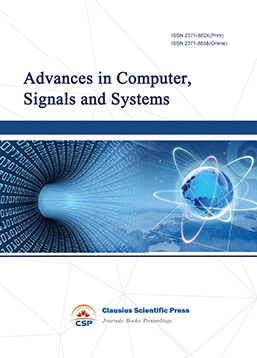An Optimization Framework for Stock Price Prediction Based on Statistical Information and Recursive Model Average -- Taking ARIMA Model as an Example
DOI: 10.23977/csoc.2022.020103 | Downloads: 20 | Views: 3958
Author(s)
Jialan Xing 1, Yawen Li 2
Affiliation(s)
1 College of Arts and Sciences, Northeast Agricultural University, Harbin, Heilongjiang, 150006, China
2 School of Statistics, Capital University of Economics and Business, Beijing, 100070, China
Corresponding Author
Jialan XingABSTRACT
Based on statistical information and recursive model average method, this paper proposes an optimization framework for stock price forecasting models. The proposed method uses intraday prices as auxiliary information and considers their functional and statistical characteristics. This framework continuously fits the residuals obtained from the original model prediction by a recursive model average method, weights the bias and variance of the prediction model, captures the functional statistical characteristics of intraday prices and the model structure among response variables, and finally optimizes the prediction accuracy of the original model. This framework is model free in theory. Taking the optimized ARIMA model as an example, the data analysis results show that the proposed method has better fitting performance and is robust compared to the ARIMA model. In addition, the proposed method can be extended in application scenarios such as average temperature prediction, traffic flow monitoring, and port cargo capacity prediction.
KEYWORDS
stock price forecasting, statistical information quantity, recursive model average method, functional characteristics, ARIMACITE THIS PAPER
Jialan Xing, Yawen Li, An Optimization Framework for Stock Price Prediction Based on Statistical Information and Recursive Model Average -- Taking ARIMA Model as an Example. Cloud and Service-Oriented Computing (2022) Vol. 2: 21-27. DOI: http://dx.doi.org/10.23977/csoc.2022.020103.
REFERENCES
[1] Yang Haimin, Pan Zhisong, Bai Wei. A review of time series forecasting methods. Computer Science, 2019, 46 (01): 21-28.
[2] Wu Rongliang. An empirical analysis of the return rate of Shanghai A-share index based on AR model. Quotient, 2016 (03): 173-174.
[3] Wu Yuxia, Wen Xin. Short-term stock price prediction based on ARIMA model. Statistics and Decision, 2016, 13 (23): 83-86.
[4] Zhao Yi. An ARIMA and LSTM based combined forecasting model for civil aviation passenger reservation [J]. Computers and Modernization, 2020 (11): 65-69 + 76.
[5] Meng Yi. Application of time series ARIMA and BP neural network combination model in CPI prediction. Journal of Shandong Agricultural University (Natural Science Edition), 2018, 49 (06): 1079-1083.
[6] Tu Xiaomeng, Chen Qiangguo. Crime time series prediction based on ARIMA-LSSVM hybrid model [J]. Electronic Technology Application, 2015, 41 (02): 160-162 + 166.
[7] Wang Qingrong. Research and application of functional principal component analysis and functional linear regression model. Chongqing Technology and Business University, 2020.
[8] Tang Yi, Feng Changhuan. Research on urban population in China based on functional principal component analysis. Journal of Yili Normal University (Natural Science Edition), 2019, 13 (03): 9-16.
[9] Wu Fei and Chen Dirong. Functional data classification based on functional principal components [J]. Journal of Wuhan Textile University, 2019, 32 (02): 48-56.
| Downloads: | 252 |
|---|---|
| Visits: | 37449 |
Sponsors, Associates, and Links
-
Power Systems Computation

-
Internet of Things (IoT) and Engineering Applications

-
Computing, Performance and Communication Systems

-
Journal of Artificial Intelligence Practice

-
Advances in Computer, Signals and Systems

-
Journal of Network Computing and Applications

-
Journal of Web Systems and Applications

-
Journal of Electrotechnology, Electrical Engineering and Management

-
Journal of Wireless Sensors and Sensor Networks

-
Journal of Image Processing Theory and Applications

-
Mobile Computing and Networking

-
Vehicle Power and Propulsion

-
Frontiers in Computer Vision and Pattern Recognition

-
Knowledge Discovery and Data Mining Letters

-
Big Data Analysis and Cloud Computing

-
Electrical Insulation and Dielectrics

-
Crypto and Information Security

-
Journal of Neural Information Processing

-
Collaborative and Social Computing

-
International Journal of Network and Communication Technology

-
File and Storage Technologies

-
Frontiers in Genetic and Evolutionary Computation

-
Optical Network Design and Modeling

-
Journal of Virtual Reality and Artificial Intelligence

-
Natural Language Processing and Speech Recognition

-
Journal of High-Voltage

-
Programming Languages and Operating Systems

-
Visual Communications and Image Processing

-
Journal of Systems Analysis and Integration

-
Knowledge Representation and Automated Reasoning

-
Review of Information Display Techniques

-
Data and Knowledge Engineering

-
Journal of Database Systems

-
Journal of Cluster and Grid Computing

-
Journal of Networking, Architecture and Storage

-
Journal of Software Engineering and Metrics

-
Visualization Techniques

-
Journal of Parallel and Distributed Processing

-
Journal of Modeling, Analysis and Simulation

-
Journal of Privacy, Trust and Security

-
Journal of Cognitive Informatics and Cognitive Computing

-
Lecture Notes on Wireless Networks and Communications

-
International Journal of Computer and Communications Security

-
Journal of Multimedia Techniques

-
Automation and Machine Learning

-
Computational Linguistics Letters

-
Journal of Computer Architecture and Design

-
Journal of Ubiquitous and Future Networks


 Download as PDF
Download as PDF